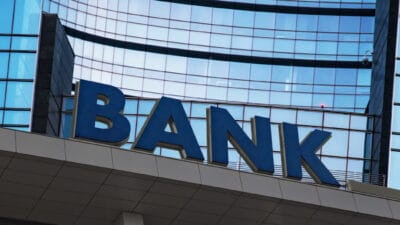The Australian housing market is in focus after a report that the number of 'liar loans' are increasing. Could this crash the housing market?
Australia's housing generates a lot of economic activity across a broad range of industries, including on the ASX.
Some of the ASX's biggest businesses, the major banks, are heavily involved with property. This refers to Commonwealth Bank of Australia (ASX: CBA), Westpac Banking Corp (ASX: WBC), Australia and New Zealand Banking Group Ltd (ASX: ANZ) and National Australia Bank Ltd (ASX: NAB). Mortgages make up a large amount of the loan book which can be seen in CBA's FY21 result presentation (and the others).
Other ASX banks also have a very sizeable exposure to the housing market like Bank of Queensland Limited (ASX: BOQ), Suncorp Group Ltd (ASX: SUN), Bendigo and Adelaide Bank Ltd (ASX: BEN), Macquarie Group Ltd (ASX: MQG) and MyState Limited (ASX: MYS).
There are also property portal websites and mortgage brokers like REA Group Limited (ASX: REA), Domain Holdings Australia Ltd (ASX: DHG) and Australian Finance Group Ltd (ASX: AFG).
The housing market also provides fuel for plenty of businesses that supply building supplies or household items for customers. Some of the many examples include Wesfarmers Ltd (ASX: WES), Metcash Limited (ASX: MTS), Brickworks Limited (ASX: BKW), CSR Ltd (ASX: CSR), Nick Scali Limited (ASX: NCK), Harvey Norman Holdings Limited (ASX: HVN), JB Hi-Fi Limited (ASX: JBH) and so on.
So, the health, strength and sustainability of the housing market has far-reaching impacts.
What is happening with 'liar loans'?
According to the latest survey done by the investment bank UBS, there is now a record number of liar loans, as reported by various media including the ABC.
Of the approximately 900 people that took on a mortgage over the last 12 months, just over 40% of these applications "were not completely factually accurate".
Readers may wish to know that this is the highest level of 'liar loans' since UBS started doing this survey and analysing the result in 2015 (when liar loans made up 27% of the total). Last year the percentage was 38%.
Allegedly, the things that people were most 'not entirely truthful' about were: not disclosing their full living costs (just over a third), not fully disclosing financial commitments (at 28%) and including rosier-than-reality income figures (at 22%).
According to the ABC, UBS said that the debt-to-income ratio on mortgages was a record. The stats show that 21.5% of loans were to people that had a debt to income ratio of at least six times. UBS said:
Amid home prices booming 18.3 per cent year-on-year (highest since 1989), we think borrowers are 'chasing the market' and stretching towards their capacity limit to be able to qualify.
The status also showed that property investors were more likely to spruce up their application (above 50%) compared to people who were buying to live in the property (31%).
How is the housing market going?
Time will tell if this has an impact on borrowers that have overstretched themselves, or the market as a whole. It will also be interesting to see if the regulators decide to step in or not at some point. There is not much talk of Australian Prudential Regulation Authority (APRA) or the Reserve Bank of Australia (RBA) doing anything for now.
The latest CoreLogic national home value index showed that national prices climbed 1.5% over August 2021 and the prior 12 months showed a 18.4% increase of property prices.








